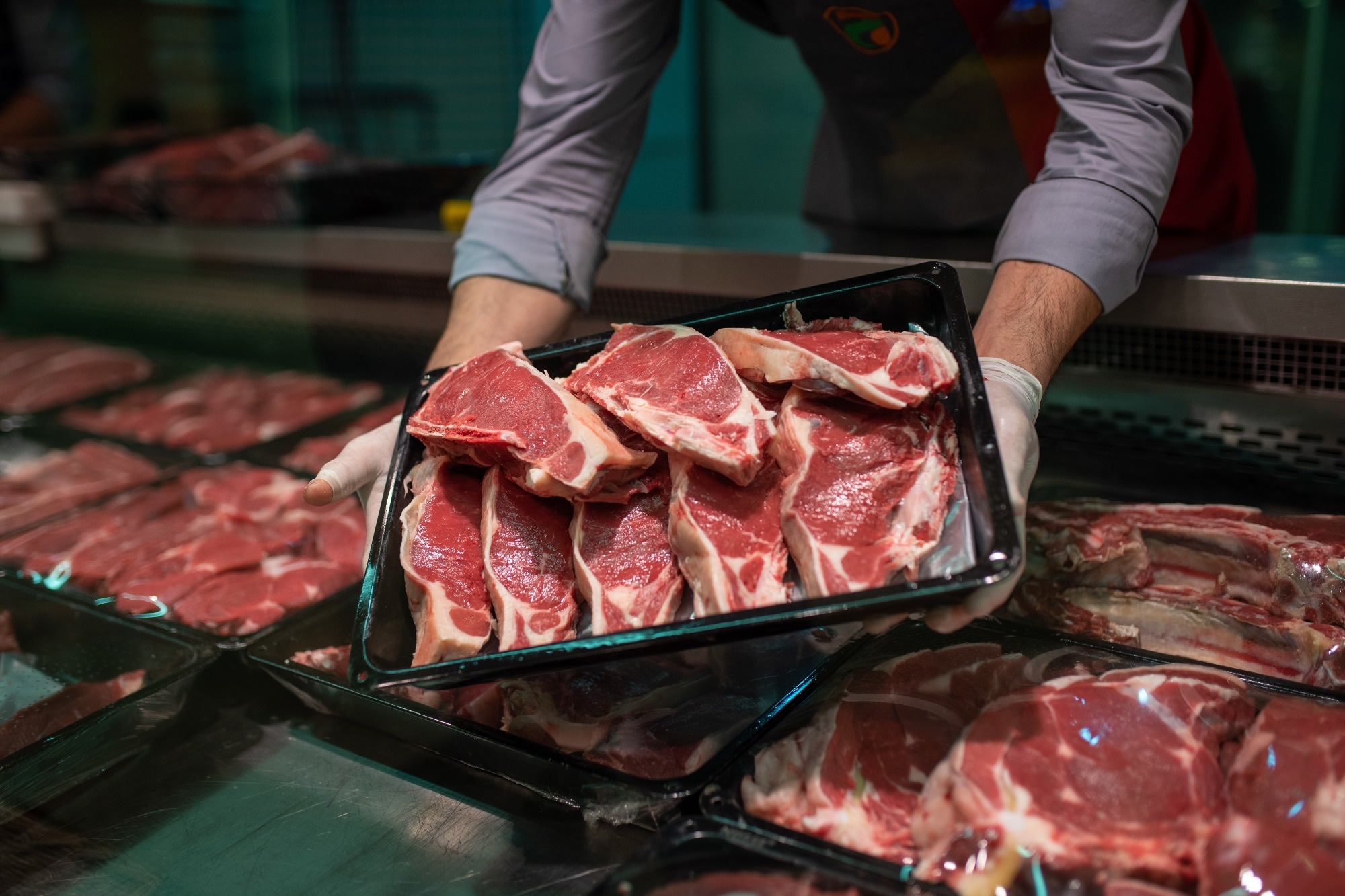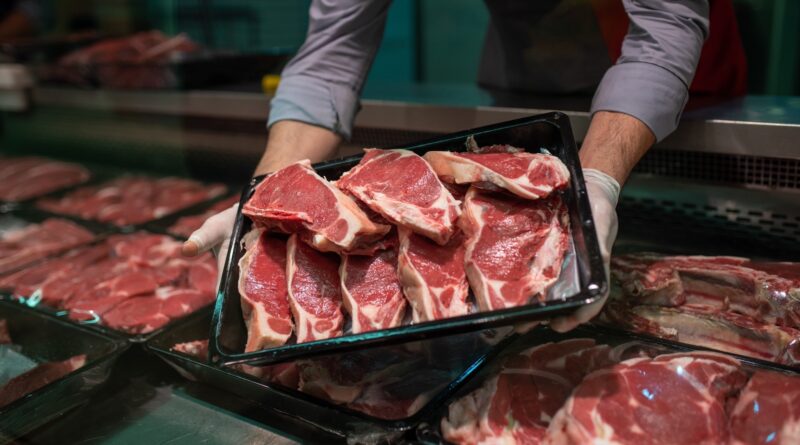Creating a sustainable diet: A UK study finds that smaller portions are key to reducing meat consumption
Reducing portions of meat has the greatest impact on reducing consumption in the UK, research shows, highlighting the need for strategies aimed at achieving environmental and health benefits.
 Education: Smaller portions of meat go a long way in reducing meat consumption in the United Kingdom. Image Credit: UlgenDes/Shutterstock.com
Education: Smaller portions of meat go a long way in reducing meat consumption in the United Kingdom. Image Credit: UlgenDes/Shutterstock.com
In a recent study published in Natural Foodsresearchers in the United Kingdom used data from the National Diet and Nutrition Survey to examine different patterns of meat consumption to find the pattern of eating that contributed the most to reducing overall meat consumption.
Insights from the study can help develop appropriate food policies and bring about healthy but sustainable nutritional changes.
Rear end
A growing body of evidence from health and nutrition research has shown that eating more meat, especially processed and red meat, can significantly increase the risk of chronic diseases such as type 2 diabetes, heart disease and colon cancer.
In addition, meat production also has significant environmental impacts as it causes excessive land use and increases the production of greenhouse gases – two important factors contributing to climate change.
In response to growing concerns about climate change and resource depletion, the UK’s Climate Change Committee has recommended that meat consumption in the country be reduced by 20% by 2030 and 50% by 2050.
Although national food and nutrition surveys have reported a slow decline in meat consumption from 2008 to 2019, the survey reports that more than a third of the country’s population continues to eat more recommended amount of cooked and red meat.
To reduce red meat consumption, it is important to understand the behaviors that drive meat consumption and to identify sustainable dietary changes and ways to reduce meat consumption.
About education
The current study used publicly available data from the UK’s National Food and Nutrition Examination Survey, a cross-sectional, multi-sectional survey that tracks nutritional information and food intake across the country. .
The study also adjusted for sex and age and included data from a random sample of independent households. The researchers used 11 years of data from 2008-2009 to 2018-2019.
The data consisted of records of all food and drink consumed for four days, obtained from the four-day food diaries that the participants had to keep. These data included portion sizes estimated using food labels or household measurements.
Since the study included people over 1.5 years old, children under 12 years old were helped by their parents or guardians to keep the notebook.
Specific patterns of meat consumption were analyzed in the study by focusing on changes in the frequency and amount of meat. Meat groups included cooked meat, red meat, white meat, and whole meat.
Additionally, the researchers made sure that only the meat portion of the multi-species dishes was included in the data, and for most meat dishes, the portion size and consumption of each type The owner of the meat is estimated separately.
The researchers analyzed four main variables of consumption behavior – the number of days meat was eaten, the proportion of people who ate meat, the number of daily meat-eating events, and the portion sizes during these events.
Differences in meat consumption during meals were also captured and meat consumption was divided into three meals a day.
Multivariate statistical analyzes were used to examine trends over time in meat consumption, and the contribution of each behavior to overall change in meat consumption was also examined.
Results
The researchers noted that the total consumption of meat in the UK fell significantly in the 11 years between 2008 and 2019, and the reduction was mainly due to a reduction in meat portions, especially in the case of cooked and red meat.
Changes differed based on demographic factors such as gender, age, and income levels, reflecting complex changes in dietary patterns.
Daily meat consumption per person was 17.5 grams lower, with small portions contributing to 51% of the reduction. Conversely, fewer meat-eating days contributed 24.4% to the overall reduction in meat consumption.
Although 17.3% of the reduction in overall meat consumption was due to changes in the proportion of meat consumers in society, fewer daily events of meat consumption contributed only 6.5% to the overall change.
However, the study found that consumption of white meat increased during this period by 2.7%. Researchers believe that this may be due to the perception that white meat is healthy, and the low price of white meat.
Gender-based changes were also observed in meat-eating behavior and patterns. It was found that men reduce meat consumption in small portions, while women reduce the number of days of meat consumption and other occasions.
Furthermore, while people in the high-income groups reduced meat consumption across all four behaviors, others only reduced portion sizes.
Decisions
Finally, trends in meat consumption in the UK showed that the trend towards smaller portions of red and processed meat was the strongest driver of reducing meat consumption in the country.
Although some changes based on gender and income were observed, the overall findings highlighted the potential for policy interventions that target the majority of sectors for the benefit of human health and the environment.
Journal reference:
-
Vonderschmidt, A., Jaacks, LM, Alexander, P., Green, R., Bellows, AL, & Stewart, C. (2024). Smaller portions of meat go a long way in reducing meat consumption in the United Kingdom. Natural Foods. doi:10.1038/s43016024010702. https://www.nature.com/articles/s43016-024-01070-2
#Creating #sustainable #diet #study #finds #smaller #portions #key #reducing #meat #consumption
